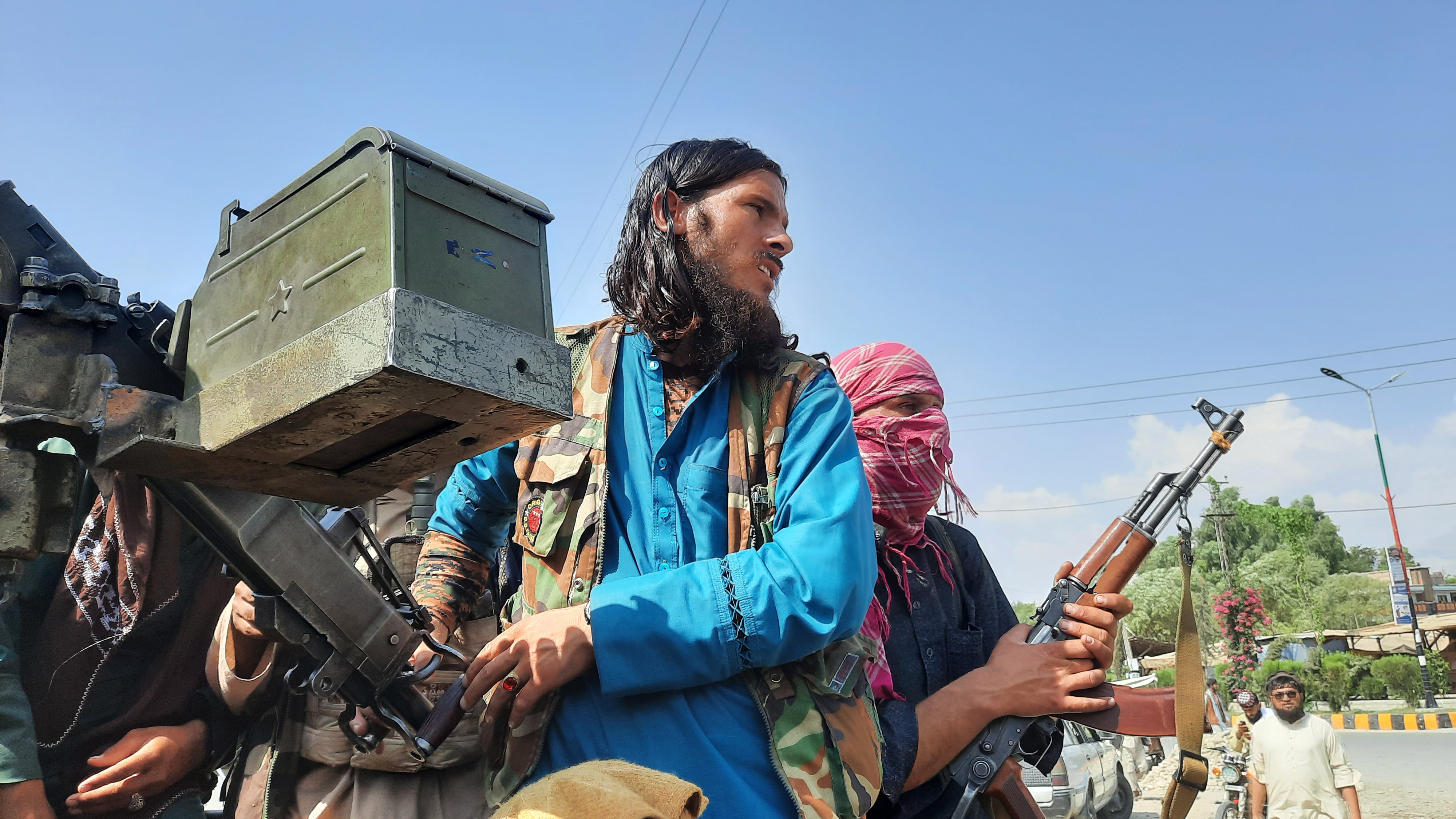Taliban returns amid failure of US interference policy
- By Jin Liangxiang
 0 Comment(s)
0 Comment(s) Print
Print E-mail China.org.cn, August 18, 2021
E-mail China.org.cn, August 18, 2021

The Taliban's return to power after 20 years is strong proof of the United States' failure in its policy of interference.
It is true that the U.S. initially launched the Afghanistan War in 2001 for the purpose of fighting al-Qaida terrorists in retaliation for the World Trade Center attacks, and overthrowing the rule of the Taliban, which was regarded as harboring Osama bin Laden and al-Qaida.
However, as events on the ground evolved, the U.S. shifted its purpose from counterterrorism to reconstructing the Afghan government. The U.S. not only overthrew the Taliban-led government in Afghanistan but also collected a group of people, who were politically pro-American and pro-Western. It was within this context that the interim government led by Hamid Karzai was established, with Karzai later formally elected as president. By then, the U.S. war on terror had shifted into one of interfering in the domestic affairs of another country – a signature move of the U.S.
Later on, American pundits even regarded controlling Afghanistan as part of a strategy to control the heartland of the Eurasian continent, considering the country's geopolitical position between central, western and south Asia.
U.S. politicians and scholars always have beautiful words and theories when it comes to interference. They argue that in a globalized world, the domestic affairs and internal governance of one country could affect the interests of other countries. They also argue that the international community should not stand indifferent to issues facing sovereign nations when humanitarian crises occur. They can always find reasons to interfere.
Afghanistan is one example, but not the only one, that strongly proves America's failure in its policy of interference. It is true that the U.S. can easily find people to form a government in countries it targets, but this can never be a sustainable solution. In 2001, the U.S. had the power necessary to invest political, economic, diplomatic and military resources in Afghanistan. However, due to its failed investment in Afghanistan, the U.S. found that it could no longer afford the resources required to maintain the status quo there.
The political establishment of the Afghan government was recognized by many countries thanks to U.S. diplomacy, but it failed to establish strong roots among the Afghan people, which is why the governance of former President Hamid Karzai never extended beyond the city of Kabul for years. Moreover, Afghan security forces have also been regarded as mercenaries of the United States, who would not fight when the U.S. withdrew its support.
Afghanistan is also proof that American-style democracy cannot simply be inserted into countries with different cultural backgrounds. American democracy may have served to make the U.S. prosperous for some time, but it does not work in other cultural contexts.
Why did the Afghan government and its security forces fail so quickly, not even launching a meaningful resistance against the Taliban's offensive? The reason is very simple: Different factions in the government would always play check-and-balance games, with one side always opposing the decisions made by the other. What they call democracy actually finally resulted in an absence of decisions and efficiency. Without efficiency and without authority, the failure of government is inevitable.
The latest developments have demonstrated the failure of the U.S. in Afghanistan. The U.S. has neither gained the geopolitical profits predicted by its previous decision-makers, nor duplicated its political system in a different culture.
The U.S. policy of interference has caused suffering for millions of Afghans. The long-term political disturbance and instability have left many homeless or struggling due to a lack of food and medical supplies. Many even lost their lives.
With the Taliban's return, it seems that the clock has been turned back to the year 2001. However, there are some differences: The Taliban is not as radical as it was, nor is it as isolated.
What is most important right now is that countries in the region – or those which have been subject to interference – wake up from the dream of American-style democracy.
Jin Liangxiang is Senior Research Fellow with the Center for West Asian and African Studies, Shanghai Institutes for International Studies. For more information please visit:
http://www.ccgp-fushun.com/opinion/jinliangxiang.htm
Opinion articles reflect the views of their authors, not necessarily those of China.org.cn.
If you would like to contribute, please contact us at opinion@china.org.cn.





